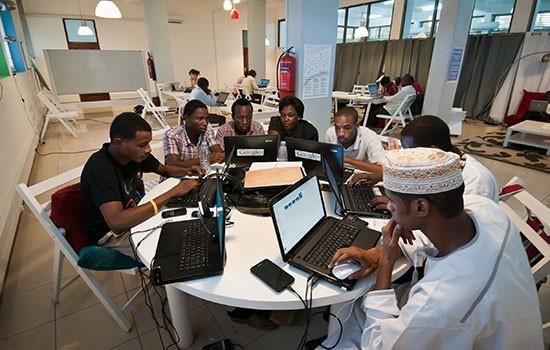ICTs (information and communication technologies) are developing quickly and are having a significant impact on economies and societies all over the world. This is remarkably accurate in developing nations like Tanzania, where ICT adoption has increased recently.
Internet connectivity, the use of mobile phones, and access to digital technologies have all increased in Tanzania. This technological transition offers enormous opportunities and obstacles for Tanzania’s sizable youth population regarding employment and entrepreneurship.
ICTs and Employability
The development of new technology is altering the nature of work and the qualifications needed to get employment. ICT literacy is becoming increasingly necessary for Tanzania’s youth to access jobs and chances for a living as the country continues to integrate into the digital global economy.
According to a Tanzania National Bureau of Statistics survey conducted in 2021, 67% of firms prioritize computer skills when employing new staff.
Tanzanian youngsters require ICT skills and academic credentials, as regular low-skill professions are being displaced by automation. They also need creative and critical thinking capabilities.
The Tanzanian government has prioritized ICT in education and training to give young people skills for the digital age. To reach 7 million children by 2025, the Ministry of Education, for instance, launched a campaign in 2016 to include ICT in school curricula.
To improve students’ technical skills, the Vocational Education and Training Authority (VETA) has also established technology-focused programs on computing, mobile phone repair, TV and radio repair, and more (VETA, 2022). However, more initiatives are required, particularly in rural regions, to build ICT infrastructure in educational institutions and prepare teachers to conduct technology-enhanced instruction.
ICTs and Entrepreneurship
New business models, platforms, and prospects for enterprise development have emerged due to ICT adoption. Tanzania is home to a thriving technology entrepreneurial scene, where young people use digital technologies to innovate.
For instance, platforms like Kazi Chap Chap help unemployed young people find work by connecting them with employers through text texts. Start-ups like ASAS Tech Ltd offer digital solutions to boost agricultural productivity.
The government has also created Buni Hub, a national hub for entrepreneurship that offers guidance, training in specific skills, and seed money to young aspirants.
Of course, there are several examples in Tanzania of how ICTs are being used to improve youth employability and entrepreneurship:
Online education: Several online education platforms offer courses and training in ICT skills. These platforms can help young people to develop the skills they need to find jobs in the ICT sector or to start their businesses. Some of these start-ups include; Shule Direct, Shule Valley Technologies, Elimutube Africa, and Lango Academy.
Mentorship programs: A notable number of mentorship programs match young people with experienced professionals in the ICT sector. These programs can provide young people guidance and support as they develop their careers. Such initiatives include Digital Opportunity Trust (DOT Tanzania) and the University of Dar es Salaam ICT Incubator – UDICTI.
Job boards and networking platforms: Currently, there is an increase in the number of job boards and networking platforms that connect young people with potential employers and mentors.
These platforms can help young people find jobs and build relationships with people who can help them advance their careers. Examples include Tanzania Youth Alliance (TAYOA), Brighter Monday, CV People Africa, Job Web Tanzania, and many others.
However, obstacles such as a lack of technical support, unstable power supplies, and restricted access to funding impede the expansion of the start-up environment. The nation needs more incubation centers and accelerator programs to support technology ventures, particularly in rural and several urban centers with limited internet connectivity and power supply.
Partnerships between the public and private sectors and civil society can foster an atmosphere encouraging young people to start their businesses. The government should offer perks like tax breaks and discounted ICT equipment to encourage young people to start technology-enabled firms.
The future of ICTs is bright, and there are many opportunities for young people to benefit from these technologies. However, ensuring that young people have the skills they need to succeed in the digital age is crucial.
By investing in ICT education and training and creating an environment that supports youth entrepreneurship, we can help young people seize the opportunities offered by ICTs. With strategic foresight and youth-centric policy, Tanzania can lead a digital revolution that generates new economic value and decent livelihoods for its growing youth population.

